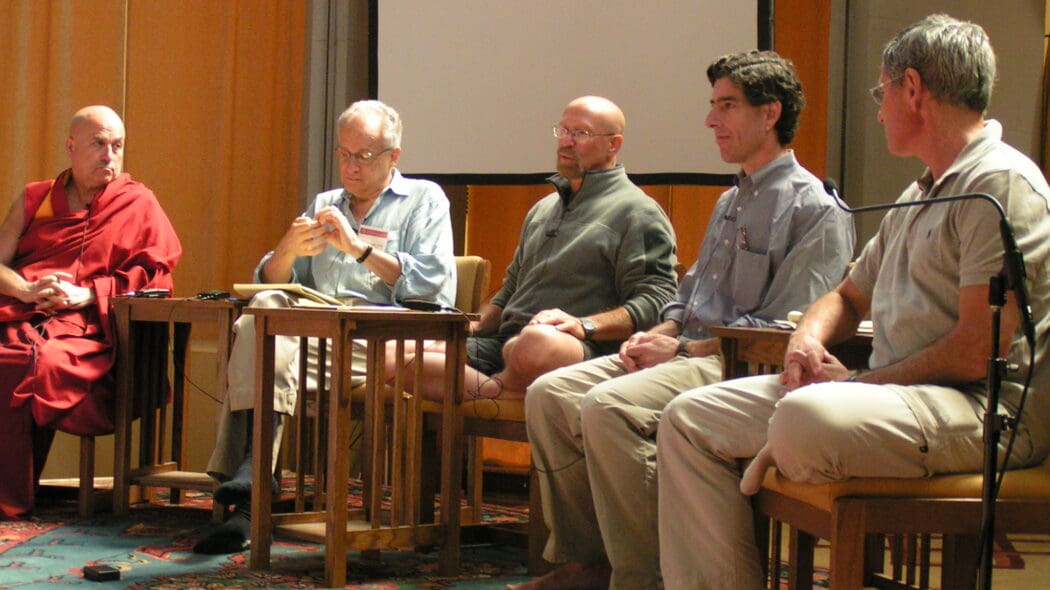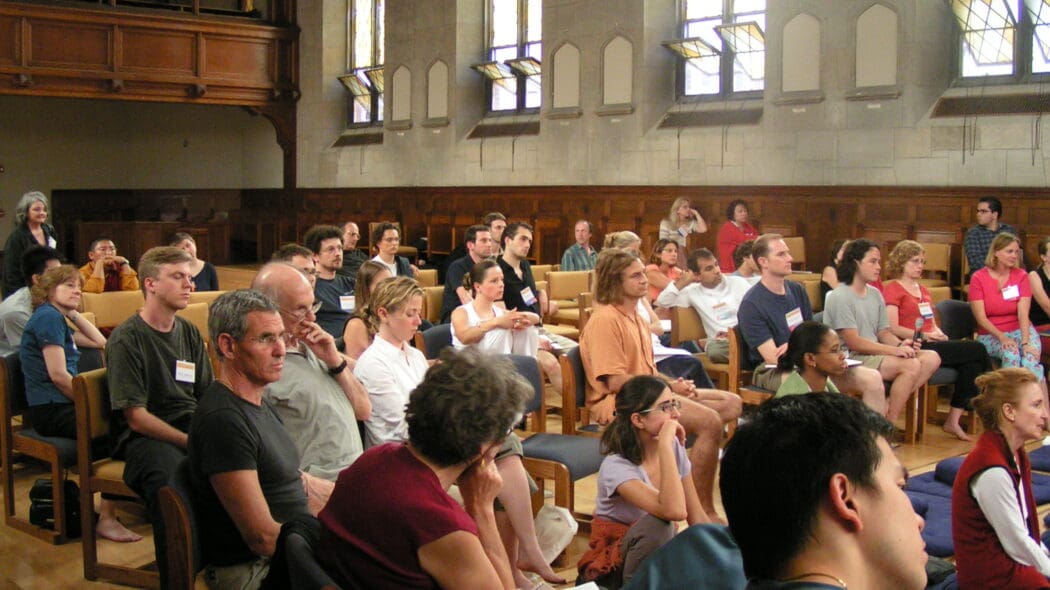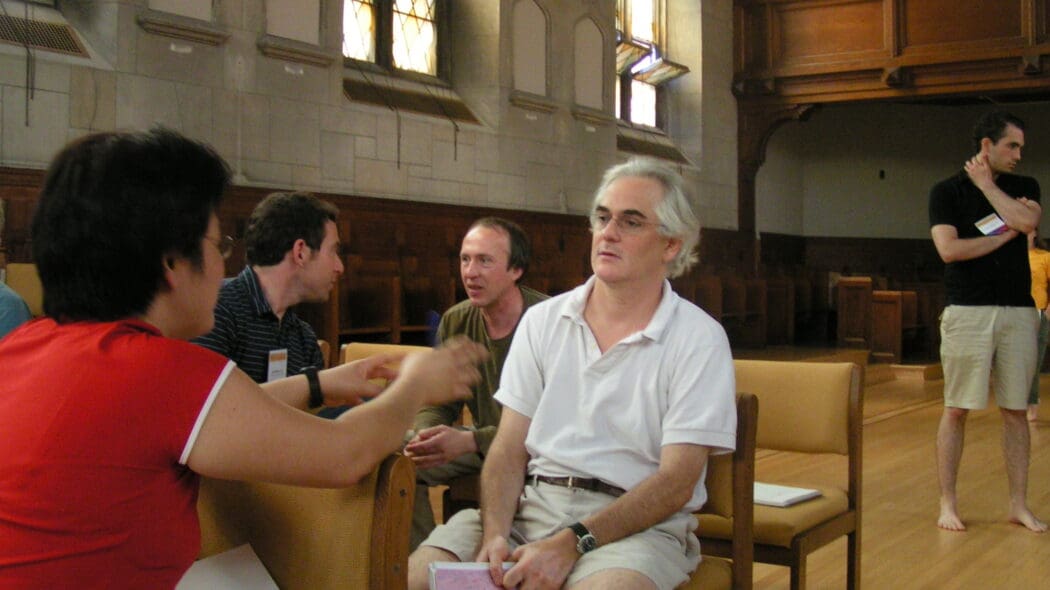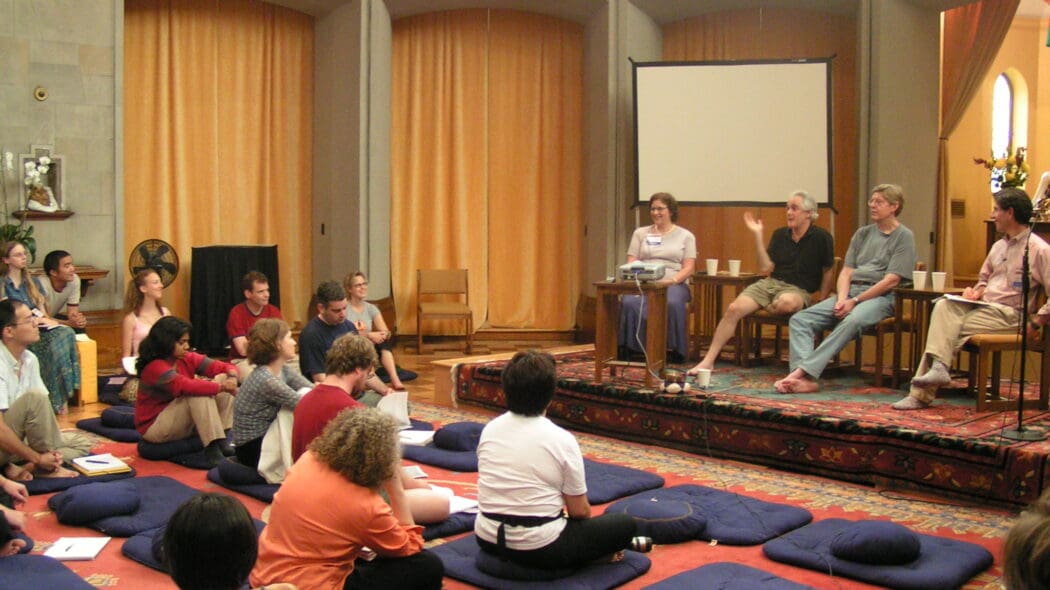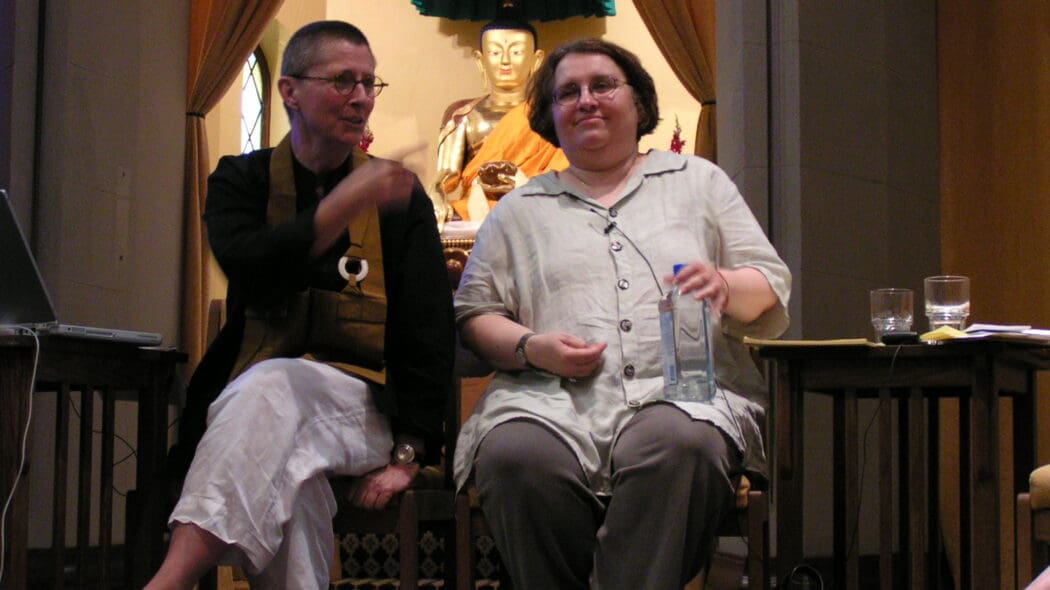2004 Summer Research Institute
2004 Summer Research Institute
The purpose of the Mind and Life Summer Research Institute is to advance collaborative research among cognitive and affective neuroscientists and contemplative practitioners and scholars. The long-term objective is to advance the training of a new generation of cognitive/affective neuroscientists interested in exploring the influence of contemplative practice on mind, behavior, and brain function, including the potential role of contemplative methods for characterizing human experience and consciousness, and a new generation of contemplative scholars interested in expanding their knowledge of the modern mind sciences.
This exploration will include experiential engagement in the practices via periods each day devoted to meditation instruction and practice, and a day-long “mini retreat” that faculty and participants will engage in together.
The specific goals of this program are several:
- to elicit strategic discussion between experimental psychologists, neuroscientists, cognitive scientists on the one hand, and contemplative scholars on the other, in order to develop research protocols to enhance investigation of human mental activity;
- to have a cadre of nascent scientists (graduate students and post-docs), and some emerging contemplative scholars, participate in these discussions in an effort to develop the next generation interested in innovation at the mind-brain interface;
- to advance a collaborative research program to study the influence of contemplative practices on mind, behavior, and brain function, by informed use of highly trained subjects in human neuroscience protocols; and
- to explore ways in which the first-person examination of mental phenomena, by means of refining attention skills, may be raised to a level of rigor comparable to the third-person methodologies of the cognitive sciences.
The overriding theme of the meeting will be to foster a meaningful dialogue between modern cognitive/affective neuroscience and contemplative practice. For such dialogue to occur, it is important for the participants to appreciate the theoretical commonalities and differences between contemplative and modern scientific perspectives. Hence attention will be given to identifying and challenging underlying assumptions that influence the empirical and theoretical study of the mind.
The scientific emphasis will be given to developing rigorous experimental designs to evaluate both state- and trait-effects of contemplative practice and potential experimental designs for incorporating “first-person” contemplative methods into cognitive/affective neuroscience research on consciousness. We will encourage the active collaboration of scientists and contemplative scholars in all phases of research. Examples of early findings from such collaborations will be provided.
Examples of the possible themes to be addressed include:
- Functional neuroimaging research on relations between changes in subjective experience during meditation and alterations in brain function.
- Neuroplasticity and its implications for understanding transformations in brain and behavior produced by contemplative practice.
- Integration of first-person methods in research on brain function, meditation, and consciousness.
- Affective and cognitive trait effects of meditation and methods to investigate these changes in brain and behavior.
- Longitudinal research with meditation practitioners.
- Epistemological and methodological issues concerning introspection and meta-cognition, as seen from the perspectives of Buddhist psychology and modern cognitive science.
Dialogue Sessions
Participants
2004 Summer Research Institute Faculty
- Gerardo Abboud
- Jane Carpenter-Cohn
- Jonathan Cohen
- Richard J. Davidson
- Georges Dreyfus
- John Dunne
- Gehlek Rimpoche
- Joan Halifax
- Jon Kabat-Zinn
- Daniel Kahneman
- Dacher Keltner
- Margaret E. Kemeny
- Steve Kosslyn
- David Meyer
- Matthieu Ricard
- Sharon Salzberg
- Bennett Shapiro
- Anne Treisman
- Tsoknyi Rinpoche
- Alan Wallace

